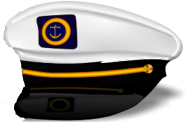Compilation of lМ0 Model Courses
The programme of model training courses developed out of suggestions from a number of IMO Member Governments, following the adoption of the International Convention on Standards of Training, Certification and Watchkeeping for Seafarers, (STCW), 1978, as amended.
Assisted by contributions from various Governments, IMO has designed the series of courses to help implement this Convention and, further, to facilitate access to the knowledge and skills demanded by increasingly sophisticated maritime technology.
The courses are flexible in application: maritime institutes and their teaching staff can use them in organizing and introducing new courses or in enhancing, updating or supplementing existing training material.
Additional info: Contains ebooks, scanned pages, final draft versions of the model courses
Скачать 547 mb
